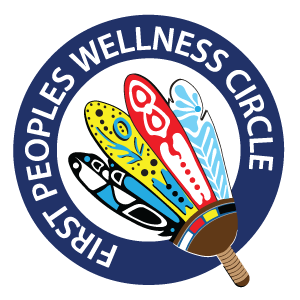BACKGROUND
In 2018, First Peoples Wellness Circle began a Comprehensive Needs Assessment (CNA) of all new and existing Mental Wellness Teams (MWTs). The goal was to determine MWT needs related to capacity, governance, infrastructure, training, networking, evaluation and defining practice-based evidence. The results from the needs assessment provide FPWC the basis for a national strategy outlining a suite of comprehensive supports required across infrastructure, governance, knowledge exchange and evaluation to be able to support the effectiveness of MWTs and their implementation of the First Nation Mental Wellness Continuum Framework.
Throughout the Comprehensive Needs Assessment, MWTs thoughtfully expressed a range of realistic needs which reflect their unique service requirements based on:
- The current gaps in the mental health system and policy environment,
- the level of underserved community circumstances coupled with high service needs due to the multigenerational impacts of colonialism on mental wellbeing,
- rural and isolated geography with vast catchment areas,
- governance models and their stage of development,
- strengths and cultural assets.
FINDINGS
MWTs provide services in a complex and high needs environment, where there is generally little access to appropriate mental wellness services for First Nations people and where highly qualified mental wellness workers and professionals are urgently needed to support multi generational healing. Compounding this situation, such workers and professionals are in short supply and are difficult to attract and retain.
The most fundamental need is a commitment to invest in MWTs to allow for the development of a stable workforce that will support mental wellness at the community level. This will result in the achievement of long-term outcomes such as reduction in alcohol and opioid addictions, suicides, mental health issues, family breakdowns, children in care, human trafficking and crime rates.
Therefore, the most urgent recommendation is that investments in MWT must be:
- Adequate
- Flexible
- Stable
- Long term
- Sustainable
The CNA concluded that when funding becomes stable, the MWTs should be able to access various supports to enhance mental wellness at the community level effectively.
OTHER IDENTIFIED NEEDS & RECOMMENDATIONS
The CNA also recognized that MWTs represent a wide diversity of service models including crisis response, community development, clinical, cultural and land-based approaches or combinations thereof. Although there are many commonalities in their needs, there are also regional variations. A range of offerings and suite of resources is therefore proposed to help MWTs enhance their current functioning and support their implementation of the First Nations Mental Wellness Continuum Framework.
The CNA recommended the suite of resources and supports should include the following:
- Training, capacity development, recruitment and retention
- Community engagement, collaboration and coordination with communities & partners
- Collaboration with non-Indigenous sector partners and government departments
- Interdisciplinary team needs for teams with varying staffing complements
- Enhanced support for cultural approaches
- Support for networking and sharing
- Advocacy for stable, flexible and adequate funding
- Addressing the unique needs of crisis response teams
- Prevention and early identification and intervention for children affected by trauma
- Gaps pertaining to the needs of First Nation people involved in or transitioning out of the judicial and correctional system.
Findings from the CNA gave added impetus and rationale for enhanced support for mental wellness teams. The findings also further underscore the findings of the First Nations Mental Wellness Continuum Framework.

